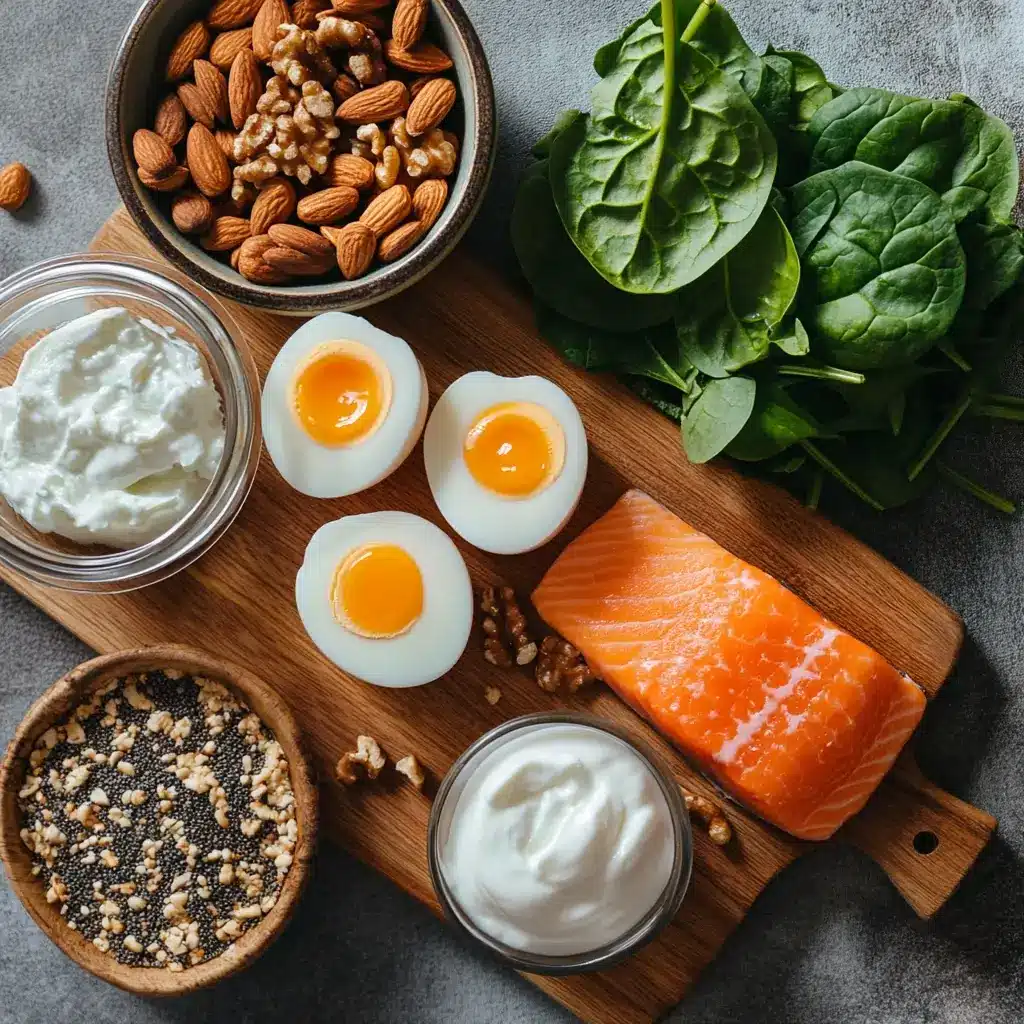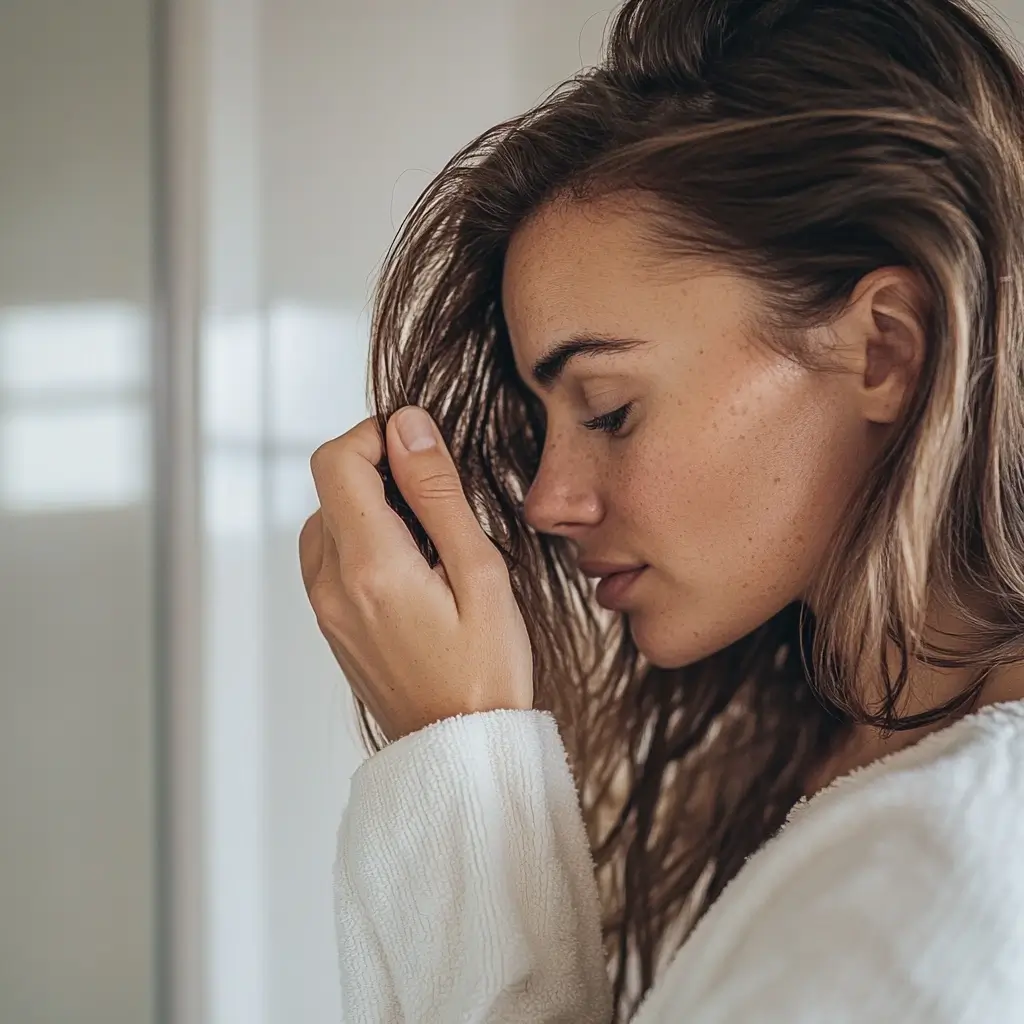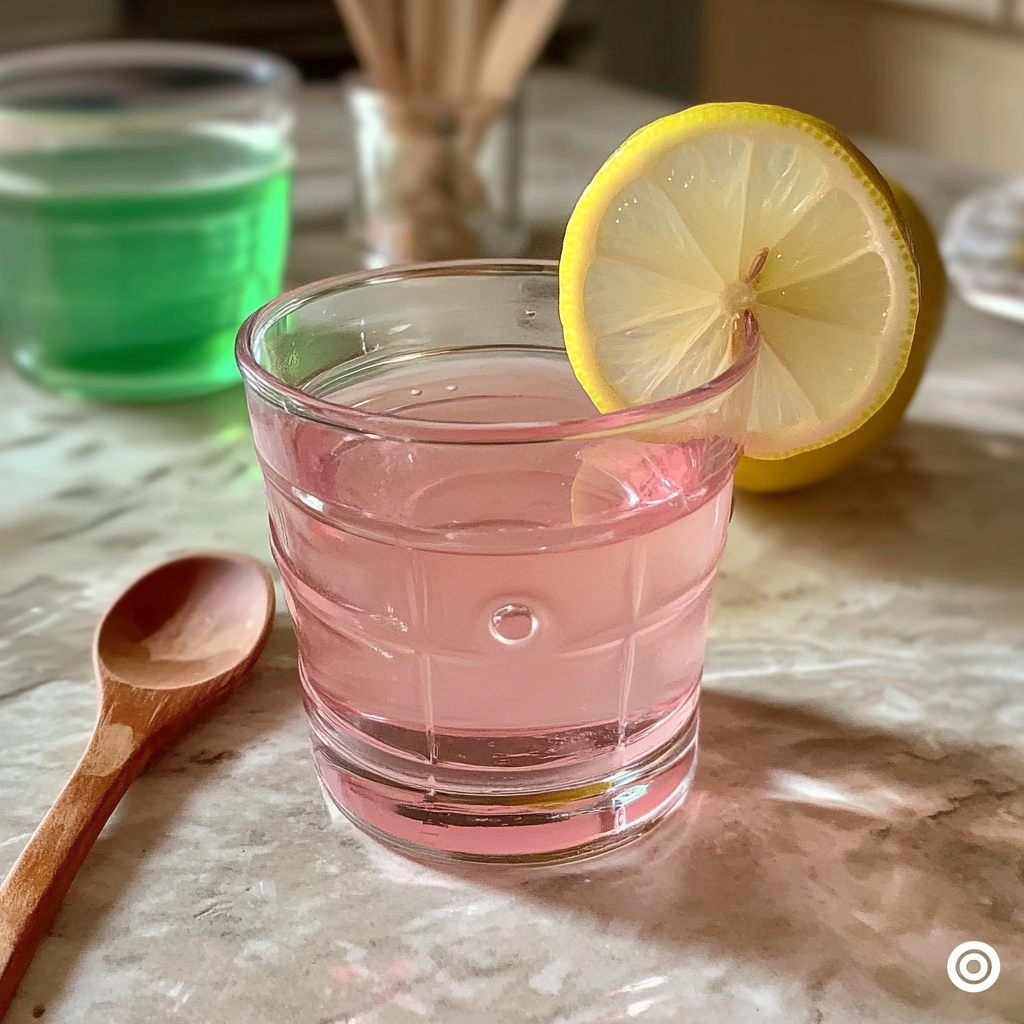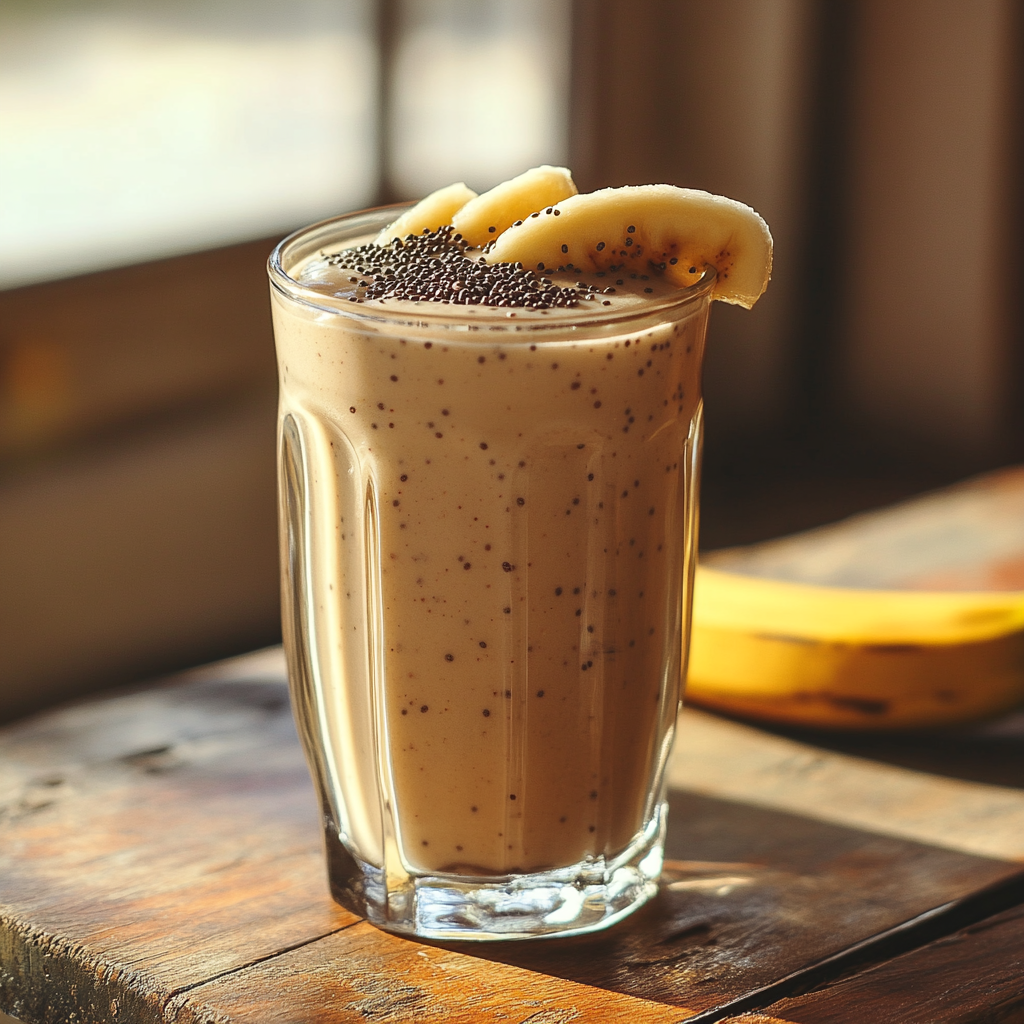Zepbound hair loss is one of the top concerns among users starting this medication. as part of your weight loss journey, there’s a good chance you’ve heard whispers about a surprising side effect: hair loss. First of all, you’re not alone. Many people have taken to online forums asking, “Is my hair thinning because of Zepbound?” or “Will it grow back once I stop?”
Let’s get one thing clear: Zepbound hair loss isn’t always caused by the medication itself—but it can happen. And when it does, it’s deeply personal, frustrating, and sometimes even scary. But the good news? There are answers, and there are things you can do right now to protect your hair, your health, and avoid Zepbound-related hair loss.
In this guide, we’ll break down the connection between Zepbound and hair loss, backed by clinical data and real stories. You’ll find practical tips, clear answers, and an encouraging voice (hi there, I’m Katie!) to walk you through it all. Whether you’re worried about thinning hair, trying to prevent it, or hoping to regrow what you’ve lost, this article is for you.
Table of Contents
What Is Zepbound and Why Is It So Popular for Weight Loss?
Zepbound is a prescription medication that’s gaining traction for helping adults manage chronic weight issues. It’s the brand name for tirzepatide, a once-weekly injection that mimics two key gut hormones GLP-1 and GIP, to reduce appetite, regulate blood sugar, and slow digestion. This powerful combo helps people shed weight rapidly and safely. Still, Zepbound hair loss may occur as a side effect of that rapid progress.
However, rapid weight loss can trigger metabolic stress, which is where concerns about Zepbound and hair loss come in. During fast weight loss, the body may prioritize vital functions and divert nutrients away from things like hair growth. linked closely to Zepbound hair loss, where more hair than usual enters the shedding phase.
The good news? For most people, this shedding is not permanent. Once your weight stabilizes and your nutrition is balanced, hair typically regrows over time.
Looking for inspiration? Try this practical guide on maintaining nutrition while losing weight to keep both your body and hair healthy during your Zepbound journey.
Zepbound Hair Loss – What’s Really Going On?
If you’ve noticed more hair on your pillow or in the shower after starting Zepbound, you could be experiencing early signs of Zepbound hair loss you’re not imagining things. While Zepbound isn’t the root cause of most Zepbound hair loss, it contributes indirectly, the rapid weight loss it triggers can lead to a condition called telogen effluvium—a temporary shedding phase caused by physical stress on the body.
This usually happens 2–3 months after weight loss begins. Your body, adjusting to a sudden calorie deficit and hormonal shifts, may pause hair growth to conserve energy. The result? A greater number of hairs may shift into the resting stage, leading to increased shedding and visible hair loss from Zepbound.
This type of hair loss is:
- Temporary
- Most common in women
- Often set off by rapid weight loss, inadequate protein, or missing nutrients.
The good news? Hair typically regrows once your weight stabilizes and your nutrition improves.
Explore smart ways to protect your hair while losing weight, so you can reach your goals without losing your confidence.
How to Avoid Hair Loss on Zepbound

While some Zepbound hair loss may be unavoidable, the good news is you can minimize it, the good news is you can minimize it. Preventing hair loss during your Zepbound journey is all about nutrition, self-care, and balance. Here’s how to stay ahead of it.
Eat Enough Protein to Support Hair Growth
Hair is made of a protein called keratin, Without enough protein, Zepbound hair loss becomes more likely as follicles are deprived. so your body needs plenty of high-quality protein to keep it strong. When you’re losing weight, your body might not get enough, especially if you’re focused more on calorie reduction than nutrient balance.
Aim for 60–100g of protein daily, depending on your size and goals. Choose foods like:
- Eggs, Greek yogurt, cottage cheese
- Chicken, turkey, lean beef
- Plant-based options like lentils, tofu, or edamame
Don’t miss our easy protein-rich meal prep ideas to support your body and prevent Zepbound hair loss.
Take Key Nutrients That Support Hair Health
Zepbound-induced weight loss and hair loss may be connected through nutrient gaps., especially in:
- Iron
- Zinc
- Vitamin D
- Biotin
- Omega-3s
A good multivitamin, along with a protein supplement (if needed), can support hair follicles from the inside out. Check with your doctor before starting any supplements, particularly if you have existing health issues.
Be Gentle with Your Hair
During this delicate time, steer clear of anything that puts extra strain on your scalp, such as:
- Tight hairstyles
- Heat tools (straighteners, curling irons)
- Harsh dyes or bleach
Instead, opt for:
- Sulfate-free shampoos
- Wide-tooth combs
- Scalp massages to boost circulation
Looking for inspiration? Try our gentle haircare routine for sensitive scalps, great if your hair is already thinning or fragile.
Track your progress and listen closely to what your body needs.
If you’re noticing excessive shedding, don’t panic, but do track it. Monitoring early signs of Zepbound hair loss can help you intervene before it worsens. Keeping a simple journal of your meals, weight changes, and hair condition can help identify patterns.
If things don’t improve after several months, consult a dermatologist or your prescribing doctor. There may be an underlying issue, especially if your Zepbound hair loss hasn’t improved after 6 months, medical advice is essential.(like thyroid imbalance or iron deficiency) that needs to be addressed.
Best Supplements to Support Hair Regrowth After Zepbound
If you’re facing Zepbound hair loss, the solution may not lie in expensive treatments, it could be in your nutrition. When your body sheds weight quickly, it often loses more than just pounds. Essential nutrients get depleted, which can show up in the form of brittle strands, thinning hair, or slower regrowth.
To give your hair the best shot at recovering, here are five essential supplements that can strengthen your follicles and restore balance while using Zepbound.

Recommended
1. Biotin – The Hair Strength Booster
Biotin is one of the most popular vitamins for hair growth, and for good reason. It helps your body produce keratin, the protein that builds strong, resilient strands.
- Suggested dose: 2,500 to 5,000 mcg/day
- Often found in “hair, skin & nails” formulas
- Bonus: It may also improve nail strength and skin texture
Note: Too much biotin can trigger skin breakouts in sensitive users. Always start low and build up as needed.
2. Iron – Vital for Hair Follicle Oxygenation
When iron levels drop, your hair may suffer due to poor oxygen delivery to follicles. This is one of the most overlooked causes of hair loss, especially in women.
- Ask your doctor for a ferritin test, not just hemoglobin
- Pair with vitamin C for better absorption
- Don’t take with coffee, dairy, or calcium, they block absorption
3. Vitamin D – Essential for Follicle Activation
Low vitamin D levels have been associated with hair thinning and slower regrowth, particularly in those undergoing rapid body changes like weight loss.
- Recommended dose: 1,000 to 2,000 IU daily
- Choose D3 over D2 for better bioavailability
- Take it with healthy fats like eggs, nuts, or avocado for better absorption
4. Zinc – For Scalp Repair and Hormonal Balance
Zinc is crucial for maintaining hormonal balance and healing damaged scalp tissue. It also supports the glands around your follicles that keep them lubricated and healthy.
- Optimal daily intake: 8–11 mg
- Too much zinc can deplete copper, balance is key
- Works well when paired with a multivitamin or collagen
5. Omega-3s – The Anti-Inflammatory Ally
Hair health often starts with the scalp, and Omega-3s help reduce inflammation that may be slowing hair growth. These healthy fats nourish the skin and promote better follicle circulation.
- Natural sources: Salmon, chia seeds, walnuts
- Supplements: Look for DHA + EPA blend for full benefits
- Also supports heart and brain health during your Zepbound journey
Track Your Progress Like a Pro
Keeping a supplement log, whether in a notepad or an app like Cronometer, helps you spot what’s working and when. Give each supplement at least 8–12 weeks to show noticeable changes.
Will My Hair Grow Back After Stopping Zepbound?
This is probably the most comforting answer when dealing with Zepbound hair loss: Yes, for most people, hair does grow back after they stop taking Zepbound or once their weight stabilizes.

Hair Loss from Zepbound Is Usually Temporary
The type of shedding most users experience is known as telogen effluvium, and it’s not permanent. Once your body adjusts to its new weight or your calorie intake evens out, your hair follicles re-enter the growth phase. That means regrowth can begin in as little as 3 to 6 months, though full thickness may take up to a year.
What Hair Regrowth Looks Like Over Time
Don’t expect instant results. Hair grows in cycles, and regrowth can be slow and subtle. You may notice:
- Soft baby hairs at the temples or crown
- Less shedding when brushing or showering
- A return of normal texture and density over time
Keep in mind, your hair may not look exactly like it did before—some people experience changes in curl pattern, texture, or volume.
When to Seek Professional Help
If your hair isn’t improving after 6 months, or you’re seeing bald patches or inflammation, it’s time to speak with a dermatologist. Other issues like iron deficiency, thyroid disorders, or hormonal imbalances could be contributing factors, and they’re all treatable.
FAQs – Common Questions About Zepbound Hair Loss
Is hair loss permanent on Zepbound?
No, Zepbound hair loss is usually temporary and resolves once your weight stabilizes. Most users who experience hair shedding are going through a condition called telogen effluvium, which is triggered by rapid weight loss, not the drug itself. Once your weight stabilizes and your nutrition improves, your hair generally begins to grow back within a few months.
How to avoid hair loss on semaglutide?
To reduce the risk of hair loss on semaglutide (or Zepbound), focus on eating enough protein, taking essential vitamins like iron, zinc, and vitamin D, and staying hydrated. Also, avoid tight hairstyles and excessive heat from styling tools. These small steps can help protect your hair while you lose weight safely.
Will my hair grow back after stopping Ozempic?
Yes, most people regain their hair after discontinuing Ozempic or once their body adjusts. Shedding typically slows 3–6 months after stopping the medication, and regrowth follows. If your hair hasn’t improved after that window, speak to a dermatologist to rule out underlying causes.
Can thin hair become thick again?
Yes, thin hair can become thicker, especially when the cause is temporary, like weight loss or nutrient deficiencies. Once your hair follicles shift back into the active growth phase and receive the support they need, volume and thickness can return. Hair-supporting shampoos, oils, biotin, and proper diet can help accelerate this process.
Conclusion – From My Kitchen to Yours
If you’ve made it this far, I hope you feel a little more at peace about Zepbound hair loss. I know firsthand how deeply personal hair can be—it’s not just about looks; it’s about how we feel in our skin. But I want to encourage you: you’re not alone, and this is often just a temporary phase in a longer journey to wellness.
Zepbound is a powerful tool for weight loss, and while some users experience hair shedding, it’s almost always tied to rapid changes in nutrition or weight—not something broken in you. With patience, support, and the right nutrients, your hair can bounce back just like your health.
So if you’re seeing extra strands on the pillow, don’t panic. It could just be temporary Zepbound hair loss, a sign to check in with your body. Nourish it well, be gentle with yourself, and remind yourself that Zepbound hair loss is just one small part of your overall wellness story and know that you’re doing something good, even if it comes with a few unexpected “oops” moments along the way.
Don’t miss follow us on Medium for more clean recipes, wellness drinks, and natural lifestyle tips you can actually use every day.



